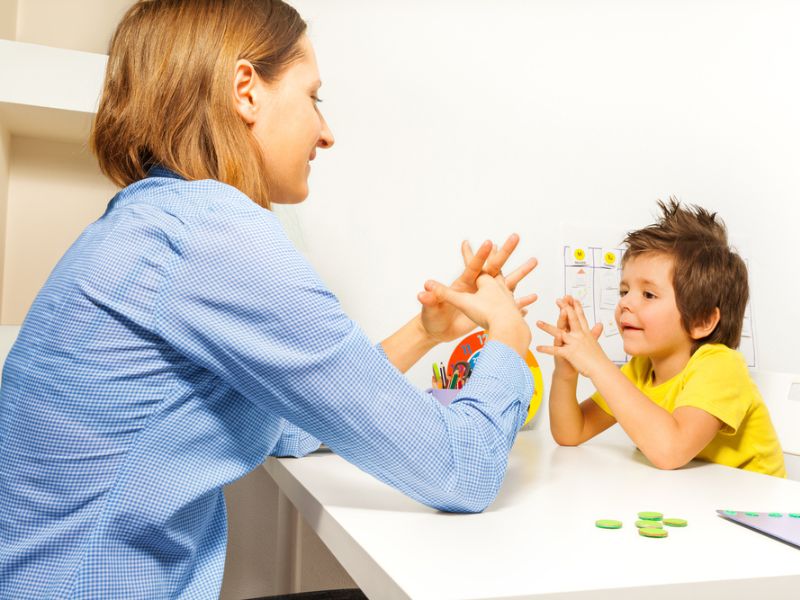Family members are already preparing for the beautiful time of the year as the holiday season approaches. One of the most stressful times of the year for many families with autistic children is the long stretch of celebrations.
Amanda Woodman, clinic director, said it could be difficult for children with autism to cope with the holiday season without being overwhelmed. A child with autism can easily be overwhelmed by Christmas lights, loud music, Santa Claus, and bright decorations.
Change of routine is another hurdle for families with autistic children. As Woodman points out, autistic kids like routines, and “the holidays are not a time when we see the same thing every day.” Here are some tips for supporting children with autism amid sensory overload and disruptions in routine.

Image Credit: Shutterstock/Sergey Novikov
The Key To Success Is To Practice
Woodman advised practicing where you’d like to take your child if you want to introduce them to traditions that could be overwhelming. She suggested visiting when it isn’t so busy. The kids can adjust to the environment without the extra people.” They hope to succeed when it’s more engaged.”
Creating Social Narratives
The purpose of social stories is to explain specific situations and solutions from the child’s perspective. Woodman suggests writing a story about visiting Santa with the child in the story if you’re going to see Santa. They’ll learn about social norms and how it works by breaking them down into steps they can understand.”

Image Credit: Shutterstock/Alex and Maria photo
Get Together And Decorate The House
Christmas decorations may cause children on the spectrum to feel out of control and uneasy. Woodman said, “Spend time figuring out what they like and don’t like so you can decorate your home and their bedroom accordingly. Find out what your child likes.”
Don’t Force Affection On Children
Children with autism tend to have sensory issues and might not enjoy obligatory hugs and kisses. Woodman advises you to tell people that your child might be hesitant ahead of time. If your child is comfortable with high fives, you can explain why and offer other alternatives.